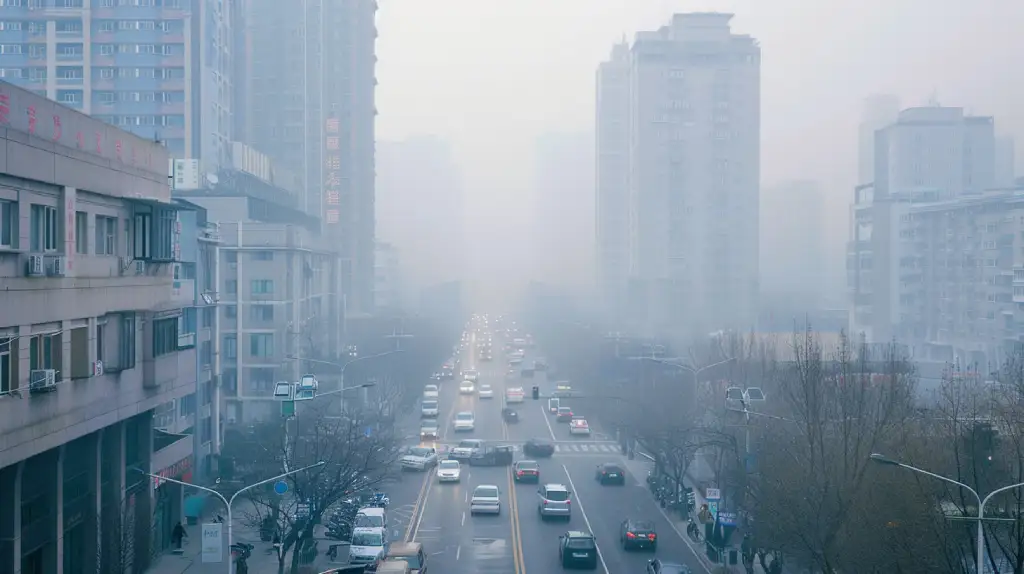Substituting public transport, cycling, or electric vehicles for private cars, using renewable energy sources, and choosing eco-friendly products can highly reduce air pollution.
Air pollution refers to harmful substances released into the air, leading to environmental damage and health problems. These pollutants can come from various sources, such as vehicles, industries, and household activities.
The effects of air pollution are widespread, contributing to respiratory issues, climate change, and ecosystem damage.
The importance of finding effective substitutions
Reducing air pollution requires changing certain habits and choices. By adopting more environmentally friendly options, we can reduce the amount of pollutants released into the air. Making these changes is crucial for protecting the environment and improving public health.
Main contributors to air pollution
The main sources of air pollution include emissions from vehicles, industrial processes, and the burning of fossil fuels. Everyday activities such as driving cars, using energy-inefficient appliances, and using chemical-based products also contribute to the problem.
How everyday choices contribute to the problem
Simple daily choices, such as using personal vehicles instead of public transport or choosing conventional household products, increase pollution. These actions may seem small, but when combined, they highly affect air quality.
Which of the following substitutions can help reduce air pollution?

Following are the substitutions that can help reduce air pollution.
Transportation
Choosing public transport, cycling, electric vehicles, carpooling, or biking:
Shifting from private vehicles to public transport, carpooling, cycling, or walking reduces the number of vehicles on the road. Electric vehicles also produce fewer emissions than traditional gasoline-powered cars, contributing to cleaner air.
- Walk or bike: Instead of driving, opt for walking or biking for shorter distances.
- Use public transportation: Consider using buses, trains, or subways to reduce vehicle emissions.
- Carpool: Share rides with others to reduce the number of vehicles on the road.
- Choose electric or hybrid vehicles: If you need to drive, consider purchasing an electric or hybrid vehicle.
Energy Usage
Using renewable sources such as solar panels, wind energy, or energy-efficient appliances:
Replacing fossil fuels with renewable energy sources, such as solar and wind, lowers pollution by reducing greenhouse gas emissions. Energy-efficient appliances use less electricity, leading to fewer emissions from power plants.
- Energy-efficient appliances: Replace older appliances with energy-efficient models.
- Conserve energy: Turn off lights and electronics when not in use.
Consumption Habits
Using low-VOC paints, eco-friendly cleaners, and natural pesticides:
Choosing products that contain fewer harmful chemicals, such as low-VOC paints and natural cleaning products, helps reduce the release of toxic substances into the air. These choices lead to healthier indoor and outdoor air quality.
- Reduce, reuse, recycle: Reduce waste by reducing consumption, reusing items, and recycling whenever possible.
- Choose sustainable products: Choose for products made from sustainable materials and with minimal packaging.
- Support local businesses: Buying local reduces the carbon footprint associated with transportation.
- Eat a plant-based diet: Reducing meat consumption can lower emissions from livestock agriculture.
Household Activities
- Use eco-friendly cleaning products: Choose cleaning products that are free of harmful chemicals.
- Properly dispose of hazardous materials: Recycle or dispose of hazardous materials safely.
These substitutions can help reduce air pollution. By making these simple changes, you can contribute to cleaner air and a healthier environment.
Benefits of These Substitutions
How each substitution positively impacts air quality
By choosing more sustainable options, we reduce the pollutants entering the air, leading to cleaner and healthier air. This has a direct impact on lowering the risk of health issues related to poor air quality.
Moreover, stopping litter or adopting practices such as proper waste disposal, picking up trash and adopting sustainable use practices can further contribute to environmental degradation.
Long-term environmental and health benefits
Over time, reducing air pollution helps slow down climate change and protect ecosystems, which is crucial for preserving biodiversity and preventing loss of species.
It also decreases the chance of respiratory and cardiovascular diseases in people, leading to a healthier population.
Real-world examples of successful pollution reduction
Cities that have adopted green transportation, renewable energy, and eco-friendly products have seen measurable improvements in air quality. These examples show that these substitutions can lead to cleaner air and a better quality of life.
Conclusion
Substitutions to Reduce Air Pollution
The main substitutions to reduce air pollution include using public transport, renewable energy, and eco-friendly products. These changes are essential for reducing pollution and protecting the environment.
Choose sustainable transportation options such as public transport, cycling, or electric vehicles. Use renewable energy sources and energy-efficient appliances. Choose products with fewer harmful chemicals, such as low-VOC paints and natural cleaning products.
Everyone has a role in reducing air pollution. By making these simple changes, you contribute to a healthier environment for yourself and future generations.
The collective impact of small changes on global air quality
When many people make small changes, the combined effect can lead to a significant reduction in global air pollution. These efforts can improve air quality worldwide, benefiting everyone.
FAQ's
1. Which of the following substitutes can help reduce air pollution?
Electric vehicles, renewable energy sources, and eco-friendly products can help reduce air pollution.
2. What can we do to help reduce air pollution?
We can reduce air pollution by using public transport, cycling, or walking, choosing energy-efficient appliances, and opting for products with fewer harmful chemicals.
3. Can alternative fuels reduce air pollution?
Yes, alternative fuels such as hydrogen and biofuels can reduce air pollution by emitting fewer greenhouse gases.




